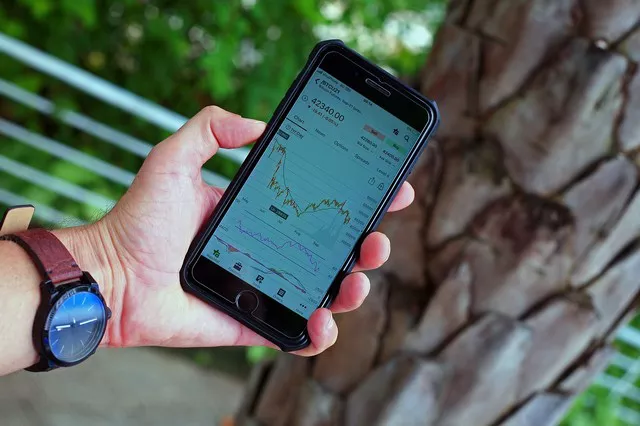Kraken Futures is a platform offered by Kraken, a prominent cryptocurrency exchange known for its robust trading services. Futures contracts are derivative financial instruments that allow traders to speculate on the future price movements of cryptocurrencies without owning the underlying asset. Understanding how Kraken Futures contracts work, including their expiration, rollover, and implications for traders, is essential for anyone looking to engage in cryptocurrency futures trading.
Introduction to Kraken Futures
Overview of Kraken Exchange
Kraken is a well-established cryptocurrency exchange founded in 2011, known for its security features, liquidity, and range of trading options. It offers spot trading, margin trading, and futures trading across various cryptocurrencies.
What are Futures Contracts?
Futures contracts are agreements between two parties to buy or sell an asset at a predetermined price on a specified future date. They enable traders to hedge against price fluctuations or speculate on price movements without owning the underlying cryptocurrency. Futures trading involves leverage, allowing traders to control larger positions with a smaller initial investment.
How Kraken Futures Contracts Work
Types of Futures Contracts
Kraken Futures offers several types of contracts, including perpetual contracts and futures with specific expiration dates. Perpetual contracts do not have an expiration date and can be held indefinitely, while traditional futures contracts have expiration dates.
Expiration Dates
Unlike perpetual contracts, traditional futures contracts on Kraken Futures have expiration dates. These contracts specify when the contract period ends, at which point settlement occurs based on the contract’s terms. Traders must close their positions before the expiration date to avoid automatic settlement.
Settlement and Rollover
Before a futures contract expires, traders have options for handling their positions:
Closing Positions: Traders can close their positions by selling (if long) or buying back (if short) the same contract they initially bought or sold.
Rollover: If traders wish to maintain exposure to the asset beyond the expiration date, they can roll over their positions. Rollover involves closing the expiring contract and opening a new contract with a later expiration date.
Understanding Expiration and Settlement
Expiration Process
When a futures contract on Kraken reaches its expiration date, the exchange follows a standardized process for settlement:
1. Expiration Time: The expiration time is typically specified in UTC (Coordinated Universal Time). Traders should be aware of the exact expiration time to manage their positions effectively.
2. Settlement Price: The settlement price is determined based on the price of the underlying asset at a specific time before or at the expiration time. Kraken calculates the settlement price based on various factors, including market activity and liquidity.
3. Settlement Method: Settlement methods can vary depending on the type of contract. Cash-settled contracts settle in fiat currency (e.g., USD), while physically settled contracts involve the actual delivery of the underlying cryptocurrency.
Implications for Traders
Risk Management
Understanding expiration dates and settlement procedures is crucial for effective risk management in futures trading. Traders must monitor their positions closely and take appropriate actions before contracts expire to avoid potential losses or missed opportunities.
Opportunity for Profit
Experienced traders may exploit price discrepancies between futures prices and spot prices as contracts approach expiration. This phenomenon, known as basis trading, involves taking advantage of market inefficiencies for profit.
Leverage Considerations
Futures trading on Kraken involves leverage, which amplifies both potential profits and losses. Traders should use leverage cautiously and be aware of margin requirements and liquidation risks associated with leveraged trading.
See Also: Is Futures Trading Good for Beginners?
Strategies for Managing Futures Contracts
Expiration Strategies
Traders can adopt various strategies to manage futures contracts effectively:
Rolling Positions: Rolling over positions involves closing expiring contracts and opening new contracts with later expiration dates to maintain market exposure.
Closing Positions: Closing positions before expiration can help secure profits or limit losses. Traders should consider market conditions and their investment objectives when deciding to close positions.
Hedging: Futures contracts can be used for hedging purposes to offset risks associated with other investments or positions in the cryptocurrency market.
Key Considerations for Traders
Market Volatility
Cryptocurrency markets are known for their volatility, which can impact futures prices and trading strategies. Traders should be prepared for rapid price movements and adjust their trading strategies accordingly.
Regulatory Environment
Regulatory developments and changes in cryptocurrency regulations can affect futures trading on Kraken and other exchanges. Traders should stay informed about regulatory updates and comply with legal requirements.
Market Liquidity
Liquidity refers to the ease with which an asset can be bought or sold without significantly affecting its price. Higher liquidity in futures markets typically results in tighter bid-ask spreads and better execution prices for traders.
Case Studies and Examples
Case Study 1: Managing Expiration
Jane holds a long position in Bitcoin futures on Kraken with a specific expiration date approaching. As expiration nears, Jane monitors market conditions and decides to roll over her position by entering into a new contract with a later expiration date. This strategy allows Jane to maintain exposure to Bitcoin while avoiding potential liquidation risks associated with the expiring contract.
Case Study 2: Basis Trading
John identifies a price discrepancy between Bitcoin futures prices and spot prices as a contract approaches expiration on Kraken. John takes advantage of this opportunity by simultaneously buying the undervalued futures contract and selling the overvalued spot position, aiming to profit from the convergence of prices.
Conclusion
Kraken Futures contracts offer traders opportunities to speculate on cryptocurrency price movements with leverage and risk management strategies. Unlike perpetual contracts, traditional futures contracts on Kraken have expiration dates, requiring traders to manage their positions before settlement occurs. Understanding the expiration process, settlement procedures, and strategies for managing futures contracts is essential for navigating the complexities of cryptocurrency futures trading.
Prospective traders should familiarize themselves with Kraken’s platform, contract specifications, and risk management tools before engaging in futures trading. By staying informed, adopting effective trading strategies, and adhering to best practices, traders can leverage Kraken Futures to potentially capitalize on market opportunities while managing risk in the dynamic cryptocurrency market.


